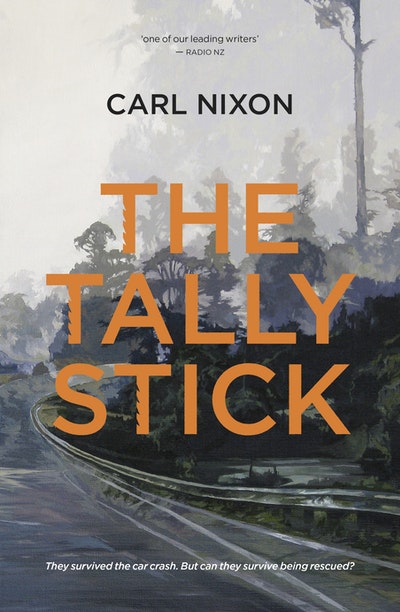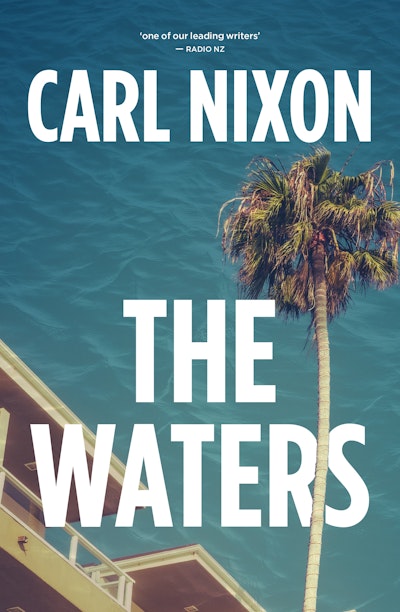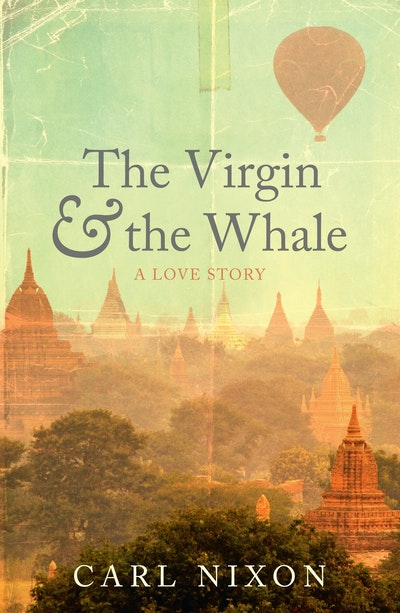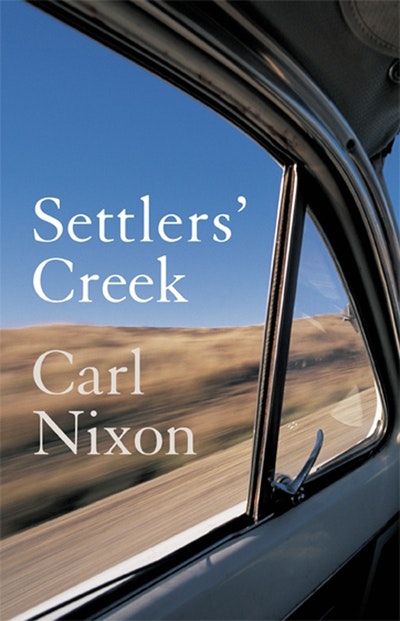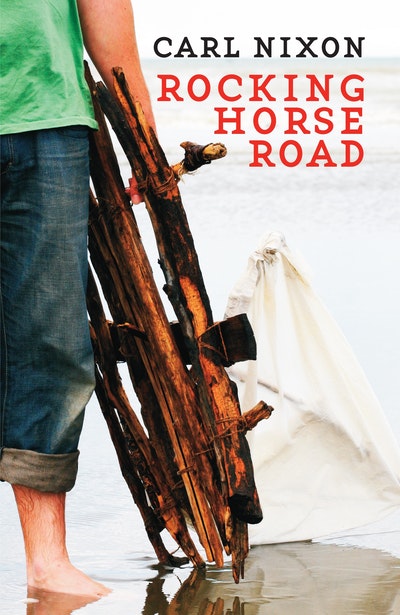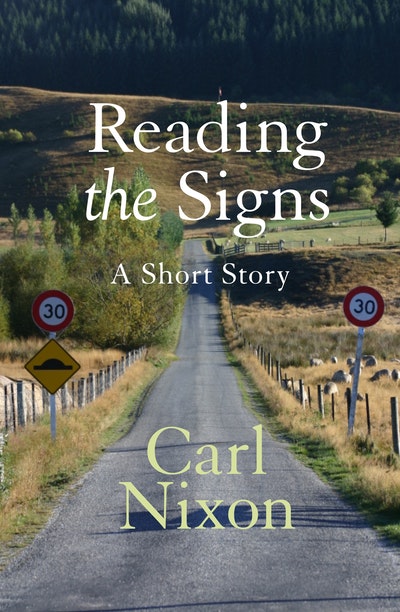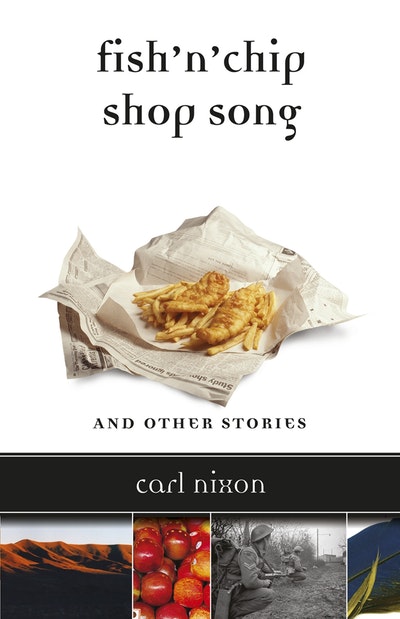- Published: 4 August 2020
- ISBN: 9780143774761
- Imprint: RHNZ Vintage
- Format: Trade Paperback
- Pages: 288
- RRP: $37.00
The Tally Stick
- Published: 4 August 2020
- ISBN: 9780143774761
- Imprint: RHNZ Vintage
- Format: Trade Paperback
- Pages: 288
- RRP: $37.00
I would place it firmly amongst what's called a literature of unease so it's very ominous and very foreboding . . . is completely compelling and which you admire the skill of so much, the writing is very powerful . . . it keeps you hooked . . . it's really masterful writing . . . I highly recommend it.
Louise O'Brien, Radio NZ
Nixon sketches in aspects of his characters’ lives deftly. . . . There’s much more, including a present day subplot involving the children’s aunt travelling from New Zealand to the UK in search of her family. It’s this thread that provides a poignant twist near the novel’s end, just before a final scene that takes us back to the beginning and provides a resonant conclusion.
Paul Little, Newsroom
‘The car containing the four sleeping children left the earth.’ That is a perfect opening sentence, conveying both mystery and dread, an almost fairy-tale dimension (dreaming children) existing alongside the brutal image of a serious car crash on a remote road on the West Coast of the South Island in the distant 1970s. . . . Does that sound Grimm? There are further fairy-tale resonances, but Nixon, who always sticks close to realism, doesn’t push them too far. . . . he is an enormously competent, highly skilled and accessible writer who successfully straddles the gulf between literary and commercial worlds. The Tally Stick? . . . is an efficient, gripping story, a Kiwi Gothic thriller that is confidently and economically told. It is probably his strongest novel. It would also make a hell of a movie, or better yet, a TV series. Nixon has things to say about adaptation and identity, about family and home, about colonialism and the new rituals and beliefs we might adopt or invent in a new land (the author has a religious studies qualification), but he lets these and other themes glide under the surface like one of his giant eels. The imagery of falling returns at the end, but there is a contrary movement, a floating above things, almost birdlike, which imparts a sense of hope and a belief in some kind of greater balance, just as Nixon balances his hard realism with a spiritual dimension.
Philip Matthews, ANZL
The Tally Stick unravels a yarn of acceptance, denial, love and resentment. There are many subtle investigations into why people behave as they do, and how simple but necessary choices affect everything. Every event and every conversation is essential to the plot with the things left unsaid and unexplained as the most powerful moments that will leave the reader thinking about the moral rights and wrongs of this story for some time to come. This is the best kind of novel: complex, contemplative, upsetting, written with an ease and flow that makes it a compelling read.
Louise Ward, Wardini Books
It is almost impossible to write a detailed review of The Tally Stick without ruining the plot. It is a compelling mystery, the effectiveness of which depends on the reader not knowing anything of what is going to happen. The story is told from multiple timelines and points of view, yet it is well structured and the different narratives weave around each other. . . . The Tally Stick is about so many things, and many of them link to the meaning of the stick - a record of unpaid debts. It raises the question of what, if anything, people owe each other, what must be earned and what should be freely given. It is about what you owe your family, at what point you may give up on them, follow your own path and disassociate from them. And if connections last through the years, what are you connected to? How do people change in different environments? . . . There are other characters the car crash survivors encounter, and they are ambiguous. We suspect them and fear them, but eventually we understand them, to a degree. The colonial experience is somewhat echoed, by the survivors encountering people who have been shaped by a completely different world. And in there being those that adjust and those that can’t, but who are therefore changed in a darker way. Those from the UK often must ask for clarification, what is a Crunchie, what are the wop-wops? The writing in The Tally Stick is evocative, you can smell the native bush, see the birds, feel the soggy forest floor. There is much that the reader must fill in for themselves. It is a read full of conflict, violence, and dread, but there is also beauty and kindness, and the switching back and forth gives it an inevitability that puts the characters in the frame of a morality play. I am not going to say anything else about the story – you will have to, and should, read it yourself.
Alyson Baker, Nelson Public Libraries
The Tally Stick begins like a waking dream, a horrifying free fall where time stretches out before snapping sickeningly back into place . . . Nixon’s opening paragraphs capture the stillness, the speed, the clarity of this horror, before punching us back into reality. From here, the novel is taut and well-plotted, balancing a mounting sense of dread with unexpected payoffs, and dancing across two parallel storylines . . . The action doglegs in often unexpected but satisfying ways . . . it challenges our expectations of genre, and in doing so engages with thorny questions about the nature of our relationships with one another. In this sense, the titular tally stick is really a McGuffin. Sure, it has a literal purpose at one stage. It’s a good hook, and its initial appearance is one of many oh shit, what now moments in the plotting. But it comes to stand in for bigger questions about reciprocity and obligation that act as the marrow of the story . . . All elements of suspense, genre and environment aside, this exploration of reciprocity illustrates how The Tally Stick is invested in looking at identity in post-colonial Aotearoa, with gestures towards England then and now . . . Nixon’s satisfying book suggests that the myriad and sometimes shifting obligations we have to one another, as well as the things that we specifically owe, aren’t mere transactions. Instead, they form the meat and sinew of our relationships, however tangled those relationships may be. To pretend otherwise will leave you alone, or, in the case of Mo, royally screwed.
Erin Harrington, The Spinoff
The impenetrability of the New Zealand wilderness is depicted with an acute eye. The description of the land is impeccable and sensitive; rivers, wildlife and weather become symbols of terror and awe. Humanity is subjugated to nature's power, and only the toughest can exist. Nixon deftly highlights the stark differences between urbane educated Londoners and Kiwi survivalists bunkering and stocking up to ward off calamity. . . . Overall, The Tally Stick is a brilliant and easy read - a tale of survival and adaptation.
Alex Bligh, Otago Daily Times
This is a ripper of a tale. . . . The ending was not what I expected. An exceptional yarn.
Linda Hall, Daily Post
Tense as a thriller, engrossing as a mystery, this novel examines lives in deep isolation on the West Coast of the South Island. How can the children who survive a car crash in the late 70s disentangle themselves from deep, unfamiliar bush—and their rescuers?
Paula Green, Judge of the NZSA Heritage Literary Awards
With slow-burning, very deliberate pacing, THE TALLY STICK isn't easy reading by any means, although it is handled with as much sensitivity as you could bring to a story of such family tragedy . . . It's cleverly structured, intricate and considered, told from multiple viewpoints and in multiple timelines, the switching aspects made easy for the reader to follow. THE TALLY STICK is a mystery more than a crime novel, all about consequences and fate. Not the easiest read in the world it's one of those books that I'd happily recommend readers have a look at - with a warning that it's going to be memorable, enthralling and very discomforting, but you're unlikely to ever want to call it straight-forward or easy reading.
Karen Chisholm, Austcrime
Nixon’s prose is arresting … which generates consistent appeal for the thrilling and emotionally nuanced story. This is electrifying.
Publishers Weekly, *starred review*
Nixon’s evocation of physical landscape and its interior counterpart resonate long in the memory.
The Times
An atmospheric thriller, this is the Kiwi version of outback noir and I couldn't put it down.
The Observer
A mesmerising mystery that clings long in the memory.
Independent.ie
From its first sentences, The Tally Stick by Carl Nixon swept me up and carried me away to a world I never knew and a place I’ve never been: New Zealand’s West Coast, a rough and rugged place where after just five days in the country the Chamberlain family completely disappears. But more than the impeccably described landscape, it’s the complicated moral choices the characters must confront that makes this novel so much more than a gripping story of loss and survival. Richly drawn, intensely atmospheric, and absolutely stunning, I loved this book!
Karen Dionne, author
a very good novel …. a beautiful adventure story … The construction of the plot is particularly effective and pleasant for the reader, it allows the story to advance without being too lengthy and without sinking into the traditional overdone horror scenes.
Benzine, Denis Billamboz
Ngaio Marsh Award for Best Crime Novel
Shortlisted • 2021 • Ngaio Marsh Award
The NZSA New Zealand Heritage Literary Awards
Runner-up • 2021 • NZSA NZ Heritage Literary Awards
